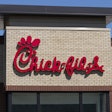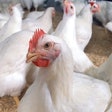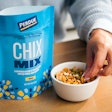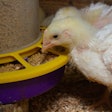Do poultry producers make the market for raised-without-antibiotics chicken and turkey meat or are they just responding to growing consumer demand?
I have heard versions of this question postulated several times since Chick-fil-A announced its intention to purchase only products from chicken raised without antibiotics. Since that time, numerous other foodservice outlets have made statements regarding current and future chicken purchases. Hand-in-hand with these statements have been pledges and announcements by several broiler integrators regarding current and future antibiotic use.
Dr. Jon L. Schaeffer, director, veterinary services, U.S. Poultry, Zoetis Inc., said that, in many ways, the changes to the Veterinary Feed Directive won’t have a big impact on poultry producers in this country, because customer demands are changing drug use before the updated regulations take effect. In fact, in cases where customers like Chick-fil-A are requiring no-antibiotics-ever broiler production, the marketplace is setting stricter requirements than is called for by the Veterinary Feed Directive or by regulations in Europe.
The Veterinary Feed Directive does more than just require a lot of additional paperwork for poultry veterinarians and feed mills. Schaeffer told the audience at USPOULTRY’s Live Production and Welfare Seminar in Nashville that the changes to the Veterinary Feed Directive leave chemical coccidiostats, ionophores and bacitracins categorized as non-medically important and this may help to preserve the right for poultry integrators to use these medications in their flocks. As someone who serviced turkeys back when drugs like fluoroquinolones were still treatment options, just having coccidiostats, ionophores and bacitracins as treatment options doesn’t sound all that promising, but it is better than no options, according to Dr. Stephen Davis, president, Colorado Quality Research.
Davis and his company have conducted research on treatments for necrotic enteritis in broilers for decades. A key component of this research is a model they have developed to cause treatment groups to break with necrotic enteritis so that the effectiveness of drugs, probiotics and other treatments can be measured. He said no-antibiotics-ever programs that preclude use of ionophores concern him, because this class of anticoccidials is considered to have antibacterial action and can be effective in some growing programs which rotate between coccidiosis vaccinations for a few flocks and then ionophore use for a few flocks. Ionophore use is not permitted in some raised-without-antibiotics programs being employed in the U.S. now.
Since Colorado Quality Research first developed its necrotic enteritis test model, Davis said it has gotten progressively easier to induce the condition in flocks. He said he is worried that broiler-growing programs that exclude the use of even non-medically important drugs will ultimately be bad for bird welfare, because necrotic enteritis is becoming a more common health problem.
Some large chicken purchasers, like McDonald’s, have announced that they won’t purchase chicken products in the U.S. from flocks treated with medically important antibiotics. I have said before and will say again that McDonald’s is doing the U.S. poultry industry a big favor by taking this position now. If McDonald’s stance satisfies consumers, than Davis may get his wish and ionophores will stay in U.S. poultry producers’ medicine chests.
So about that question, poultry producers don’t make the market for raised-without-antibiotics chicken and turkey, but they do have an opportunity to help shape it. Some consumers had a desire for poultry raised with less drugs, someone was going to fulfill that desire, and the classification of some useful antimicrobial drugs as non-medically important, which the Veterinary Feed Directive does, may just help keep a large segment of the U.S. market from jumping all the way to “no drugs ever.”
















